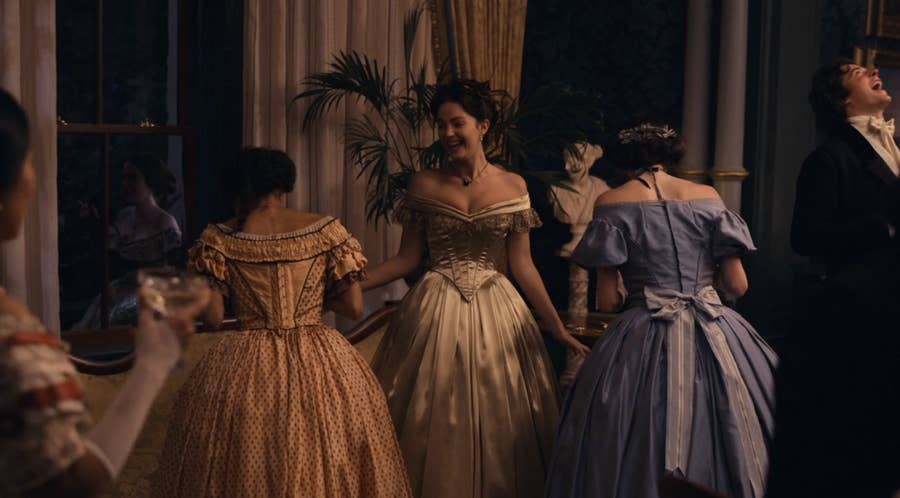Dickinson (2019–2021) is a historical comedy-drama television series that explores the life of Emily Dickinson, one of America’s greatest poets. The show, created by Alena Smith, reimagines Dickinson’s world through a modern lens, blending historical accuracy with contemporary themes, music, and dialogue. Hailee Steinfeld stars as Emily Dickinson, portraying her as a rebellious, passionate, and ambitious young woman determined to challenge societal norms. The series follows her struggles with gender roles, family expectations, and her deep, romantic love for her best friend and sister-in-law, Sue Gilbert. Through its witty script and bold storytelling, Dickinson captures the complexities of Emily’s life and mind, offering a refreshing take on a literary icon.
Throughout its three-season run, Dickinson delves into Emily’s relationships with her family and her place in a rapidly changing world. Her father, Edward Dickinson, played by Toby Huss, is a strict but loving patriarch who discourages Emily’s writing ambitions, fearing they will interfere with her marriage prospects. Jane Krakowski portrays Emily’s mother, who expects her daughter to conform to traditional female roles. Meanwhile, Emily’s relationship with Sue, played by Ella Hunt, is one of the most compelling aspects of the show, highlighting the intensity of their love and the societal constraints that force them apart. With a unique blend of humor and emotional depth, Dickinson presents a compelling examination of the poet’s life and the struggles of women in the 19th century.

The series also incorporates fantastical elements, often depicting Emily’s interactions with Death, played by Wiz Khalifa, as a way of exploring her poetic inspirations and existential questions. These surreal moments serve to emphasize her introspective nature and her preoccupation with mortality. The inclusion of contemporary music and anachronistic dialogue creates a striking contrast between the historical setting and the modern themes, making the show accessible to a younger audience. The narrative structure often shifts between reality and imagination, giving viewers a glimpse into Emily’s creative process and her struggle to find her place in a world that fails to understand her genius.
A significant aspect of Dickinson is its feminist perspective, showcasing Emily as a defiant figure who refuses to be confined by the expectations of her time. The show highlights her frustration with the limitations imposed on women, particularly in terms of marriage, education, and artistic freedom. By infusing her character with modern sensibilities, Dickinson draws parallels between the 19th century and contemporary issues of gender equality and LGBTQ+ representation. The series does not shy away from addressing these themes, making it a powerful commentary on both past and present struggles for female autonomy and recognition.

Dickinson concludes its story with Emily embracing her identity and dedicating herself fully to her art, despite the lack of recognition she receives during her lifetime. The final season solidifies her legacy, portraying her as a visionary ahead of her time. By blending historical fact with creative storytelling, Dickinson offers a unique and engaging portrait of Emily Dickinson, celebrating her contributions to literature while reimagining her story for a new generation. The series remains a standout piece of historical fiction, offering a fresh and thought-provoking perspective on one of America’s most enigmatic poets.





